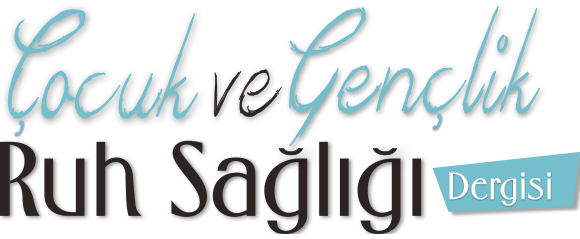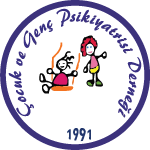ABSTRACT
Attention deficit hyperactivity disorder (ADHD) is one of the common neurodevelopmental disorders of childhood. ADHD management is typically applied by a variety of pharmacological and non-pharmacological methods. In recent years, exercise have been used as a complementary method in various age groups together with conventional methods in ADHD management. Studies have reported that exercise had positive effects on attention, hyperactivity, impulsivity, behavioral problems, executive functions, and mood problems in patients with ADHD. In conclusion, exercise can provide positive contributions both separately and in addition to conventional treatment methods in the management of the core symptoms of ADHD. In this context, it should be taken into consideration that it can be a complementary method in the management of ADHD.
Keywords:
Attention deficit, hyperactivity, executive functions, exercise, attention deficit hyperactivity disorder
References
1Polanczyk G, De Lima MS, Horta BL, Biederman J, Rohde LA. The worldwide prevalence of ADHD: a systematic review and metaregression analysis. Am J Psychiatry. 2007;164:942-948.
2Rowland AS, Lesesne CA, Abramowitz AJ. The epidemiology of attention‐deficit/hyperactivity disorder (ADHD): a public health view. Ment Retard Dev Disabil Res Rev. 2002;8:162-170.
3American Psychiatric Association. Diagnostic and Statistical Manual of Mental Disorders, 5th Edition: DSM-5. American Psychiatric Publishing; 2013.
4Willcutt EG. The Prevalence of DSM-IV Attention-Deficit/Hyperactivity Disorder: A Meta-Analytic Review. Neurotherapeutics. 2012;9:490-499.
5Thapar A, Cooper M, Eyre O, Langley K. Practitioner review: what have we learnt about the causes of ADHD? J Child Psychol Psychiatry. 2013;54:3-16.
6Barkley RA. Major life activity and health outcomes associated with attention-deficit/hyperactivity disorder. J Clin Psychiatry. 2002;63 Suppl 12:10-15.
7Mattingly GW, Wilson J, Rostain AL. A clinician’s guide to ADHD treatment options. Postgrad Med. 2017;129:657-666.
8Mulas F, Gandia R, Roca P, Etchepareborda MC, Abad L. Pharmacological update in attention deficit hyperactivity disorder: models of intervention and new drugs. Rev Neurol. 2012;54 Suppl 3:S41-53.
9Chaddock L, Erickson KI, Prakash RS, VanPatter M, Voss MW, Pontifex MB, Raine LB, Hillman CH, Kramer AF. Basal ganglia volume is associated with aerobic fitness in preadolescent children. Dev Neurosci. 2010;32:249-56.
10Voss MW, Vivar C, Kramer AF, Van Praag H. Bridging animal and human models of exercise-induced brain plasticity. Trends Cogn Sci. 2013;17:525-544.
11Chan JSY, Liu G, Liang D, Deng K, Wu J, Yan JH. Special Issue–Therapeutic Benefits of Physical Activity for Mood: A Systematic Review on the Effects of Exercise Intensity, Duration, and Modality. J Psychol. 2019;153:102-125.
12McKercher CM, Schmidt MD, Sanderson KA, Patton GC, Dwyer T, Venn AJ. Physical Activity and Depression in Young Adults. Am J Prev Med. 2009;36:161-164.
13Peluso MAM, Guerra de Andrade LHS. Physical activity and mental health: the association between exercise and mood. Clinics (Sao Paulo). 2005;60:61-70.
14Morgan WP. Affective beneficence of vigorous physical activity. Med Sci Sport Exerc. 1985;17:94-100.
15North TC, McCullagh P, Tran ZV. Effect of exercise on depression. Exerc Sport Sci Rev. 1990;18:379-416.
16Ransford CP. A role for amines in the antidepressant effect of exercise: a review. Med Sci Sports Exerc. 1982;14:1-10.
17Christiansen L, Beck MM, Bilenberg N, Wienecke J, Astrup A, Lundbye-Jensen J. Effects of Exercise on Cognitive Performance in Children and Adolescents with ADHD: Potential Mechanisms and Evidence-based Recommendations. J Clin Med. 2019;8:841.
18Nagel BJ, Bathula D, Herting M, Schmitt C, Kroenke CD, Fair D, Nigg JT. Altered white matter microstructure in children with attention-deficit/hyperactivity disorder. J Am Acad Child Adolesc Psychiatry. 2011;50:283-292.
19Cha J, Fekete T, Siciliano F, Biezonski D, Greenhill L, Pliszka SR, Blader JC, Roy AK, Leibenluft E, Posner J. Neural Correlates of Aggression in Medication-Naive Children with ADHD: Multivariate Analysis of Morphometry and Tractography. Neuropsychopharmacology. 2015;40:1717-1725.
20Cortese S, Kelly C, Chabernaud C, Proal E, Di Martino A, Milham MP, Castellanos FX. Toward systems neuroscience of ADHD: a meta-analysis of 55 fMRI studies. Am J Psychiatry. 2012;169:1038-1055.
21Koch G, Johansson U, Arvidsson E. Radioenzymatic determination of epinephrine, norepinephrine and dopamine in 0.1 ml plasma samples: plasma catecholamine response to submaximal and near maximal exercise. J Clin Chem Clin Biochem. 1980;18:367-372.
22Van Loon GR, Schwartz L, Sole MJ. Plasma dopamine responses to standing and exercise in man. Life Sci. 1979;24:2273-2277.
23Wigal SB, Emmerson N, Gehricke JG, Galassetti P. Exercise: Applications to Childhood ADHD. J Atten Disord. 2013;17:279-290.
24Jeyanthi S, Arumugam N, Parasher RK. Effect of physical exercises on attention, motor skill and physical fitness in children with attention deficit hyperactivity disorder: a systematic review. Atten Defic Hyperact Disord. 2019;11:125-137.
25McKune AJ, Pautz J, Lomjbard J. Behavioural response to exercise in children with attention-deficit/hyperactivity disorder. South African J Sport Med. 2003;15:17-21.
26Taylor AF, Kuo FE. Children With Attention Deficits Concentrate Better After Walk in the Park. J Atten Disord. 2009;12:402-409.
27Memarmoghaddam M, Torbati HT, Sohrabi M, Mashhadi A, Kashi A. Effects of a selected exercise programon executive function of children with attention deficit hyperactivity disorder. J Med Life. 2016;9:373-379.
28Ahmed GM, Mohamed S. Effect of regular aerobic exercises on behavioral, cognitive and psychological response in patients with attention deficit-hyperactivity disorder. Life Sci J. 2011;8:366-371.
29Meßler CF, Holmberg HC, Sperlich B. Multimodal therapy involving high-intensity interval training improves the physical fitness, motor skills, social behavior, and quality of life of boys with ADHD: a randomized controlled study. J Atten Disord. 2018;22:806-812.
30Rassovsky Y, Alfassi T. Attention improves during physical exercise in individuals with ADHD. Front Psychol. 2019;9:2747.
31Chang YK, Liu S, Yu HH, Lee YH. Effect of acute exercise on executive function in children with attention deficit hyperactivity disorder. Arch Clin Neuropsychol. 2012;27:225-237.
32Mehren A, Özyurt J, Lam AP, Brandes M, Müller HHO, Thiel CM, Philipsen A. Acute Effects of Aerobic Exercise on Executive Function and Attention in Adult Patients With ADHD. Front Psychiatry. 2019;10:132.
33Ng QX, Ho CYX, Chan HW, Yong BZJ, Yeo WS. Managing childhood and adolescent attention-deficit/hyperactivity disorder (ADHD) with exercise: A systematic review. Complement Ther Med. 2017;34:123-128.
34Hoza B, Smith AL, Shoulberg EK, Linnea KS, Dorsch TE, Blazo JA, Alerding CM, McCabe GP. A randomized trial examining the effects of aerobic physical activity on attention-deficit/hyperactivity disorder symptoms in young children. J Abnorm Child Psychol. 2015;43:655-667.
35Medina JA, Netto TL, Muszkat M, Medina AC, Botter D, Orbetelli R, Scaramuzza LF, Sinnes EG, Vilela M, Miranda MC. Exercise impact on sustained attention of ADHD children, methylphenidate effects. Atten Defic Hyperact Disord. 2010;2:49-58.
36Lee SK, Lee CM, Park JH. Effects of combined exercise on physical fitness and neurotransmitters in children with ADHD: a pilot randomized controlled study. J Phys Ther Sci. 2015;27:2915-2919.
37Willcutt EG, Doyle AE, Nigg JT, Faraone S V., Pennington BF. Validity of the executive function theory of attention-deficit/ hyperactivity disorder: A meta-analytic review. Biol Psychiatry. 2005;57:1336-1346.
38Diamond A. Executive functions. Annu Rev Psychol. 2013;64:135-168.
39Miyake A, Friedman NP, Emerson MJ, Witzki AH, Howerter A, Wager TD. The Unity and Diversity of Executive Functions and Their Contributions to Complex “Frontal Lobe” Tasks: A Latent Variable Analysis. Cogn Psychol. 2000;41:49-100.
40Patros CHG, Alderson RM, Kasper LJ, Tarle SJ, Lea SE, Hudec KL. Choice-impulsivity in children and adolescents with attention-deficit/hyperactivity disorder (ADHD): A meta-analytic review. Clin Psychol Rev. 2016;43:162-174.
41Lijffijt M, Kenemans JL, Verbaten MN, Van Engeland H. A meta-analytic review of stopping performance in attention-deficit/ hyperactivity disorder: Deficient inhibitory motor control? J Abnorm Psychol. 2005;114:216-222.
42Tsatsoulis A, Fountoulakis S. The protective role of exercise on stress system dysregulation and comorbidities. Ann N Y Acad Sci. 2006;1083:196-213.
43Binder E, Droste SK, Ohl F, Reul JMHM. Regular voluntary exercise reduces anxiety-related behaviour and impulsiveness in mice. Behav Brain Res. 2004;155:197-206.
44Ludyga S, Gerber M, Brand S, Holsboer-Trachsler E, Pühse U. Acute effects of moderate aerobic exercise on specific aspects of executive function in different age and fitness groups: A meta-analysis. Psychophysiology. 2016;53:1611-1626.
45Benzing V, Chang YK, Schmidt M. Acute Physical Activity Enhances Executive Functions in Children with ADHD. Sci Rep. 2018;8:12382.
46Gawrilow C, Stadler G, Langguth N, Naumann A, Boeck A. Physical Activity, Affect, and Cognition in Children With Symptoms of ADHD. J Atten Disord. 2016;20:151-162.
47Álvarez-Bueno C, Pesce C, Cavero-Redondo I, Sánchez-López M, Martínez-Hortelano JA, Martínez-Vizcaíno V. The Effect of Physical Activity Interventions on Children’s Cognition and Metacognition: A Systematic Review and Meta-Analysis. J Am Acad Child Adolesc Psychiatry. 2017;56:729-738.
48Verret C, Guay MC, Berthiaume C, Gardiner P, Béliveau L. A physical activity program improves behavior and cognitive functions in children with ADHD: An exploratory study. J Atten Disord. 2012;16:71-80.
49Ludyga S, Brand S, Gerber M, Weber P, Brotzmann M, Habibifar F, et al. An event-related potential investigation of the acute effects of aerobic and coordinative exercise on inhibitory control in children with ADHD. Dev Cogn Neurosci. 2017;28:21-28.
50Piepmeier AT, Shih CH, Whedon M, Williams LM, Davis ME, Henning DA, et al. The effect of acute exercise on cognitive performance in children with and without ADHD. J Sport Heal Sci. 2015;4:97-104.
51Fritz KM, O’Connor PJ. Acute exercise improves mood and motivation in young men with ADHD symptoms. Med Sci Sports Exerc. 2016;48:1153-1160.
52Mayer JS, Hees K, Medda J, Grimm O, Asherson P, Bellina M, et al. Bright light therapy versus physical exercise to prevent co-morbid depression and obesity in adolescents and young adults with attention-deficit / hyperactivity disorder: Study protocol for a randomized controlled trial. Trials. 2018;19:1-19.
53Villa-González R, Villalba-Heredia L, Crespo I, Del Valle M, Olmedillas H. A systematic review of acute exercise as a coadjuvant treatment of ADHD in young people. Psicothema. 2020;32:67-74.
54Choi JW, Han DH, Kang KD, Jung HY, Renshaw PF. Aerobic exercise and attention deficit hyperactivity disorder: brain research. Med Sci Sports Exerc. 2015;47:33-39.
55Kang KD, Choi JW, Kang SG, Han DH. Sports therapy for attention, cognitions and sociality. Int J Sports Med. 2011;32:953-959.



